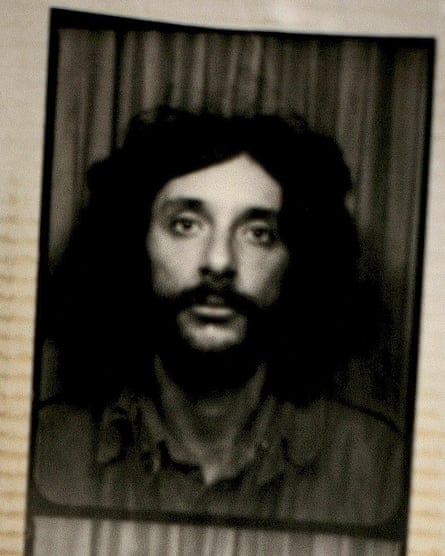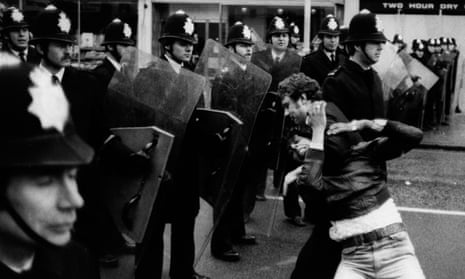Campaigners are demanding a fresh inquiry into the death of protester Blair Peach during a demonstration held to prevent the National Front holding a meeting in Southall, west London, 40 years ago this week.
The New Zealand-born teacher was killed during widescale unrest as thousands of protesters fought almost 3,000 police deployed to protect the NF’s right of assembly in one of the most racially diverse areas of London. More than 700 people were arrested, 345 of them charged and hundreds more injured.
Peach, a special needs teacher, was struck on the head as police charged at him and other protesters on the evening of 23 April 1979. A report compiled soon after by Metropolitan police commander John Cass, but only released in 2010, concluded that Peach was “almost certainly” killed by one of six riot police officers who were members of the Special Patrol Group, which was replaced in 1987 by the Territorial Support Group.
Fourteen witnesses saw Peach, a member of the Anti-Nazi League, being struck by an officer but nobody has ever been charged with his death. The events 40 years ago remain a sensitive topic within Southall’s predominantly Asian community and the wider anti-racism movement. Activists accuse the police of instigating the violence, of racism and of using excessive force.
A demonstration is to take place in Southall this week along with a series of events, many of them in the town hall, where a plaque is to be unveiled in memory of Peach and Gurdeep Singh Chaggar, a local man who was killed by a racist gang in 1976.
Gareth Peirce, the lawyer who defended many of those arrested in 1979, said: “Unquestionably a public investigation is required as to what happened and why it was covered up for so long. A man was killed, wholly innocent people were convicted and evidence against them fabricated.
“The police went out to deliberately inflict injuries on innocent people and were being provocative and racist. An onslaught of violence was unleashed on the Southall community and other protesters. The Hillsborough inquiry shows that reopening investigations into incidents that happened in the past is not only important but achievable.”

In his report Cass found that officers had deliberately lied to obstruct the investigation into Peach’s death. He identified the likely killer by his pseudonym, Officer E, but concluded that there was not enough evidence to mount a prosecution. Locker searches of SPG officers uncovered unauthorised weapons, including illegal truncheons, knives, two crowbars, a whip, a 3ft wooden stave and a lead-weighted leather stick. One officer was caught trying to hide a metal cosh while another was found with a collection of Nazi regalia.
Suresh Grover of the Monitoring Group, an anti-racist charity that played a leading role in the protests, said the full names of all six officers identified by Cass will be read out at all the forthcoming commemorative events. All of them are still believed to be alive.
“There are reasonable grounds for them to be investigated with a view to bringing charges. A murder took place, it doesn’t matter when it happened. There’s also a deep emotional injustice felt by the Southall community at how they were treated by the police and that has not been addressed for 40 years,” said Grover. The demands for a reopening of investigations into Peach’s death and police conduct are also being supported by the National Education Union, which presents an annual Blair Peach award for teachers who have carried out anti-racism work.
The NEU’s joint general secretary, Kevin Courtney, said: “Blair was an active member of the union and a committed anti-racist and we have not forgotten him. He was there in Southall with many other teachers. There were some terrible things done by the police and there has never been an open and honest investigation about it, nor an apology to the Southall community.” It is time to put this right.
Following the release of the Cass report, the then Scotland Yard commissioner, Sir Paul Stephenson, apologised to Peach’s family, saying that it was “a matter of regret” that the force was unable to collect the evidence to convict his killer and that it made for “uncomfortable reading”.
The Met refused to comment on calls for a new investigation, saying: “In 1979 provision for investigating this type of incident was not in place in the manner it is now. There was no independent body with the same role as the Independent Office for Police Conduct. Following a death in similar circumstances today, police services are required to make an immediate referral to the IOPC.”
